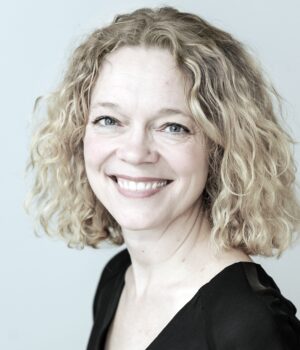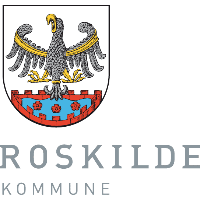Succeeded in creating change
Special consultant and former participant in our training in change management and process consultation, Annette Breinholt from Roskilde Municipality, is the project manager for "Development of effective daycare in disadvantaged residential areas":
- We have succeeded in creating a change so that the pedagogical learning environment now meets the requirements for a quality daycare center. This means that the prerequisites for the children to benefit from coming there are actually present.
But how do you actually go about leading a change project like the one that has succeeded in Mælkebøtten?

- Special consultant in Roskilde Municipality and project manager on the project "Development of effective daycare in vulnerable residential areas".
- Trained as an audiology educator with continuing education in coaching, program and project management, facilitation, change management and process consulting
- Former participant in LEAD's "Professional Change Management and Process Consulting" program.
"Developing effective daycare in disadvantaged neighborhoods"
Vulnerable children benefit greatly from attending a high-quality daycare center, but it is a known challenge that the pedagogical task is different in daycare centers with a high concentration of vulnerable children. This was precisely the background for Roskilde Municipality's project: "Development of effective daycare in disadvantaged residential areas".
The project has led to a significant increase in the quality of pedagogical work, documented in measurements taken in February 2019 and again in February 2020. Børnehuset Mælkebøtten is an example of this success. The kindergarten is located in Æblehaven, a vulnerable residential area.
At Mælkebøtten, the project has resulted in a KIDS measurement on, for example, "relationships" increasing from 49.4% in 2019 to 82.4% in 2020, which means that Mælkebøtten has moved from "insufficient" to "good" quality.
It's about interdisciplinarity, dialog and collaboration
Like other municipalities in Denmark, Roskilde Municipality focuses on qualifying and strengthening early intervention in the children's area. Therefore, in 2018, a cross-cutting program with no time horizon was established with the aim of strengthening early intervention. Under the program, a number of time-limited projects were defined, where "Development of effective daycare in vulnerable residential areas" was one of them.
As head of the program, Annette Breinholt was tasked with engaging with the relevant actors and stakeholders and then working with them to identify the strengths and weaknesses of the existing practice, as well as creating a change analysis with mission, goals and impact.
- In that process, we became very specific about the changes we wanted to create. So the mission might sound very lofty, but the desired changes are very concrete.
The program is dynamic, so projects can be changed as they are completed or new ones are added:
- The challenges children and their families face are constantly changing. We live in a constant state of flux, which is why we need to continuously adjust the projects to fit the current situation. What they all have in common is that they are cross-cutting in nature or related to early detection efforts, says Annette Breinholt.
Defined as an Action Learning Consulting project
According to Annette Breinholt, involvement is the key to the success of the project "Developing effective daycare in disadvantaged neighborhoods". The project was defined as an Action Learning Consulting project:
- We involved as many parties as possible. And we took an implementation approach where, through learning partnerships, we ensured that the stakeholders were involved in creating the desired change together.
This also means that a classic project description has not been drawn up, but rather a framework description in which three tracks have been defined. One track is about improving the quality of the learning environment - the aforementioned KIDS measurement is used here. The second track is about bringing interdisciplinary collaboration and special education knowledge closer to general practice. The third track deals with the expanded parental collaboration, which is very important in a daycare center like Mælkebøtten.
- We have come the furthest with the interdisciplinary collaboration and the learning environment - and the project was originally set for the end of 2020, but due to a spring characterized by Coronavirus, we have extended the project by half a year. Because we have really managed to create a change, so we don't want to just let it go, says Annette Breinholt.
Collaboration spaces rather than interfaces
In addition to creating a framework description based on existing knowledge, Annette Breinholt held a number of workshops at the start, where relevant stakeholders were invited. These included the heads of daycare facilities, the heads of PPR and counselors from Children and Youth. Here, bridges and barriers were defined based on practice:
- We needed to highlight where we were particularly successful and where we were less successful. We wanted to focus on the collaborative space we were trying to create, rather than the interfaces that already existed. Instead of saying: "you do this, I'll do that", we wanted to find out what we could achieve together, says Annette Breinholt.
During the workshops, sample actions were defined, tested in practice and then discussed:
- We have really turned our common understanding around and all parties have moved along the way. Today, it's much more about our children and our shared task than it used to be.
The ALC approach is also evident here:
- I've worked a lot with boundary-crossing leadership: creating a common direction, coordination and commitment between the actors who are part of the change and in this way creating trust between those who need to collaborate.
Annette Breinholt has also thought about change management in relation to the way the pedagogical staff at Børnehuset Mælkebøtten develop their skills.
- We have chosen a training program for educators where transfer is incorporated in the form of "classroom" teaching and then testing what is learned in practice. This is a good way to ensure that the skills learned are actually implemented in practice.
And it is important that the project is anchored in all stakeholders - including the educators at Børnehuset Mælkebøtten - if the project and the change are to be completed:
- When it's meaningful for employees, it creates engagement - and that makes it much better, says Annette Breinholt.
She also highlights the pedagogical leader in Mælkebøtten, who played a major role in the success of the project.
- She has really done a great job in terms of commitment and getting the employees on board. Without the competent management of Mælkebøtten, who created the framework for a major professional boost, we would never have reached our goal.
Trust across the board
The project has already succeeded in creating change - now it's about how to sustain it. So far, Annette Breinholt has always returned to her management documents, such as program documents with project descriptions, change analyses, goal diagrams, etc:
- It may sound trite, but the governance documents are really valuable because I can constantly pull them out and keep the stakeholders on track with the goals we've set and the changes that have been defined. Last year, I presented them to the steering committee when they were deciding which projects to include in the program going forward. Now I will use them again when evaluating the first projects.
Annette Breinholt is constantly working on the relational - building trust across disciplines - and balancing between the strategic and the practical.
- It is important to bring in stories from everyday life so that decision-makers know what consequences their decisions have in practice. On the other hand, there is also a very important task in translating strategies and decisions into practical reality," she says.
It is a central task to coordinate the various initiatives that are underway in the daycare centers - to create meaning. That's why Annette Breinholt strives to maintain an ongoing dialog with the area manager, the pedagogical manager and other stakeholders:
- I am very aware that it is not only our project that is going on with them. Other projects and other administrations may also have initiatives that have an impact on our daycare. It's all good - fortunately, things support each other, but if we don't get it coordinated, we'll knock them over, and doubts may arise about what is important and what should be prioritized.
Time for professional leadership
Throughout this process, there has also been a focus on whether resources were being used correctly. As the situation stands today, more resources are not necessarily coming to the area, which is why it's about finding a solution with existing resources. It's about leaving the existing practice behind and establishing a new practice together that benefits everyone.
- For example, it became clear that the manager in Mælkebøtten spent a lot of time on things that had nothing to do with pedagogical quality. If she is to be accountable for pedagogical quality, she needs to free up time for professional management. Therefore, for a short period of time, the manager in Mælkebøtten has had an administrative employee for 10 hours a week, freeing up time to give her employees feedback and sparring on the pedagogical practice. However, we have yet to gather experience with this solution.
Focus on interdisciplinary collaboration, professional management and competence development of pedagogical staff are just part of the project, which as a whole seems to have succeeded in providing children from socially disadvantaged areas with better development opportunities by creating effective daycare facilities.
- Now we are about to draw concrete experiences and organizational learning from the project in order to develop a model for developing and maintaining high-quality daycare. Because in Mælkebøtten we have succeeded in creating a pedagogical learning environment that meets the requirements for a high-quality daycare - and that is a success, says Annette Breinholt.
Contact us to learn more about what we can do for your business
Are you facing an organizational change? Do you need strategic advice or a leadership development program?
Contact us and together we will tailor a process that develops the exact competencies and structures that strengthen and future-proof your organization.
Read one of our many cases and references
You can read more about our cases and references here, where we present how LEAD works with leadership and organizational development.

